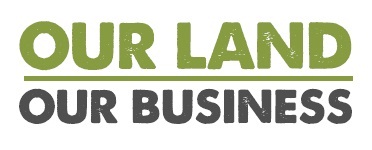Land Deal Brief: Tanzanian Villagers Pay for Sun Biofuels Investment Disaster
The Tanzanian government has put agriculture at the forefront of its development agenda through its “kilimo kwanza” (agriculture first) initiative, which was established in 2009. For a country like Tanzania, which is gifted with a rich diversity of natural and human resources and has a population that is still largely rural, investment in agriculture can offer considerable development potential. In recent years, the production of agrofuels by foreign energy companies has been a growing area of agricultural investment in the country. Although proponents of this trend argue that it will bring much-needed agricultural investment to a country where the majority of the population is engaged in agriculture, others are concerned that large-scale agrofuel production, coupled with insecure land rights and weak land governance, is actually fuelling exclusion of rural households from their land.

Land Deals in Africa: Tanzania
Reports and Briefs
Understanding Land Investment Deals in Africa: Tanzania
After decades of limited interest in agriculture in developing countries, foreign direct investment (FDI) in agriculture is on the rise. In recent years, over 4 million hectares (ha) of land have been requested by foreign investors for both agrofuel and food production in Tanzania. Though a small portion of these (70,000 ha) had actually been formally leased as of December 2010, this confirms Tanzania as a very attractive country for foreign investors seeking to grow food and agrofuels for export.
Land Deal Brief: Tanzanian Villagers Pay for Sun Biofuels Investment Disaster
The Tanzanian government has put agriculture at the forefront of its development agenda through its “kilimo kwanza” (agriculture first) initiative, which was established in 2009. For a country like Tanzania, which is gifted with a rich diversity of natural and human resources and has a population that is still largely rural, investment in agriculture can offer considerable development potential. In recent years, the production of agrofuels by foreign energy companies has been a growing area of agricultural investment in the country. Although proponents of this trend argue that it will bring much-needed agricultural investment to a country where the majority of the population is engaged in agriculture, others are concerned that large-scale agrofuel production, coupled with insecure land rights and weak land governance, is actually fuelling exclusion of rural households from their land.
Land Deal Brief: Lives on Hold
In June 2011, the Oakland Institute (OI) released details of the largest land deal in Tanzania, which had been hidden away from public scrutiny prior to that and obscured from national debate and discussion. The deal involved Iowa-based Summit Group and the Global Agriculture Fund of the Pharos Financial Group working in partnership with AgriSol Energy LLC and Iowa State University College of Agriculture and Life Sciences.
Land Deal Brief: Eight Myths and Facts About AgriSol Energy in Tanzania
The June 2011 publication of the Oakland Institute’s investigation into AgriSol Energy’s land deal in Tanzania was followed by an indicting televised report from Dan Rather, the involvement of international civil society including the Sierra Club, Tanzanian activists, and a broad array of supporters from around the world. Yet, AgriSol still plans to go ahead with this large-scale agricultural project to produce agrofuel and genetically modified crops for export from Tanzania.
Land Deal Brief: AgriSol Energy and Pharos Global Agriculture Fund’s Land Deal in Tanzania
Iowa-based Summit Group and Global Agriculture Fund of the Pharos Financial Group, in partnership with AgriSol Energy LLC and the College of Agriculture and Life Sciences at Iowa State University, are developing a large agriculture enterprise in Tanzania. The site encompasses three “abandoned refugee camps”– Lugufu in Kigoma province (25,000 ha), Katumba (80,317 ha), and Mishamo (219,800 ha), both in Rukwa province.